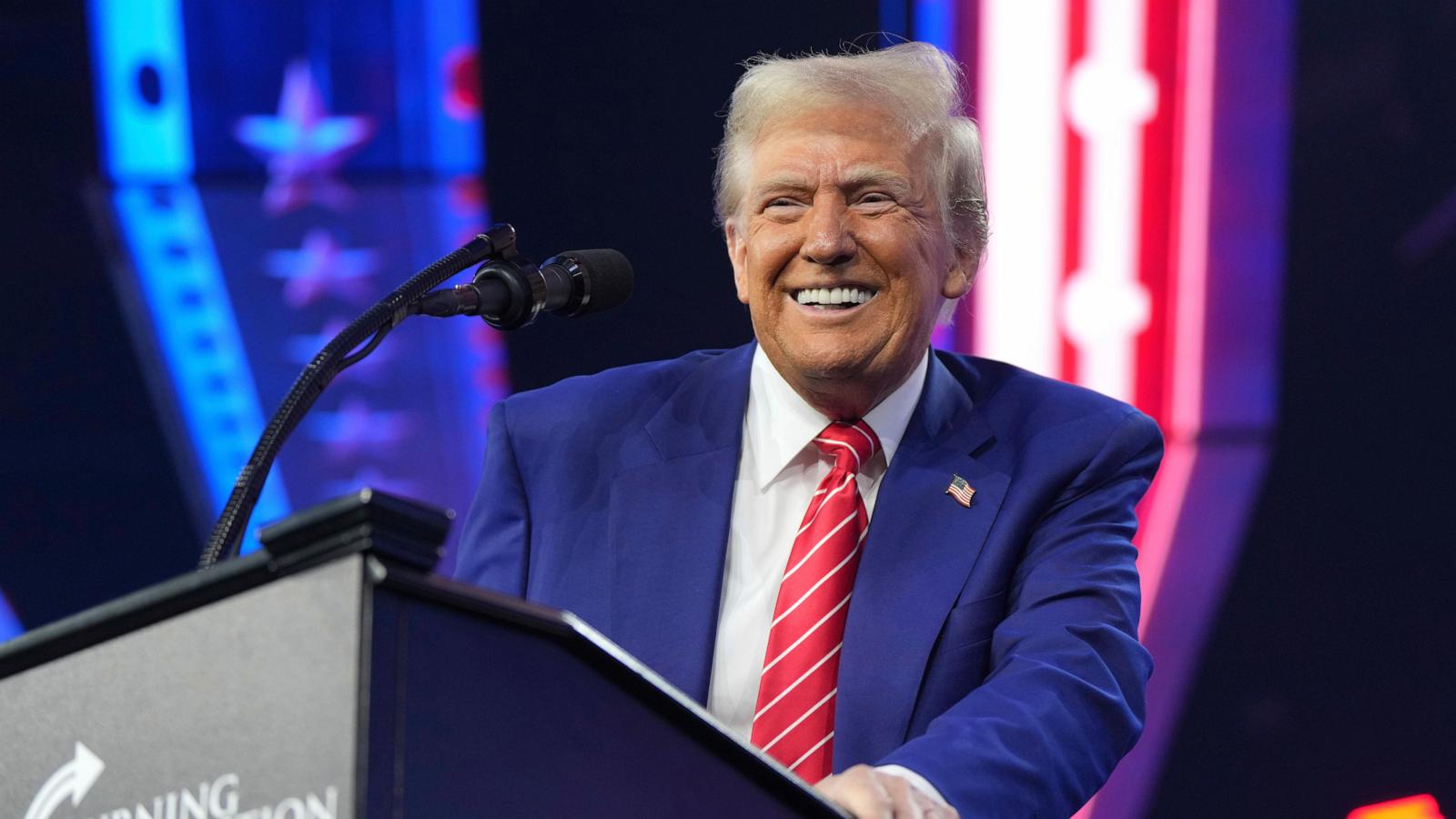Trump's Bold Claim: Reclaiming the Panama Canal—A Controversial Stance
Donald Trump's recent assertion that the United States should seize back control of the Panama Canal has sent shockwaves through political circles and ignited a fiery debate. This unexpected declaration, made during a post-election rally, paints a picture of a determined leader unwilling to shy away from bold, even controversial, maneuvers. But will this audacious move actually happen? Let's dive into the details and examine the implications of this dramatic claim.
The Panama Canal: A Pivotal Point of Contention
Trump's statement regarding the Panama Canal is not merely a casual remark; it signifies a potential shift in US foreign policy. The canal's significance transcends mere economics; it is a crucial geopolitical asset connecting the Atlantic and Pacific oceans. Its strategic location has always held tremendous value for global trade and military operations, solidifying its place as a vital piece in the world's economic puzzle. Trump's bold demand for its return raises complex questions about international relations and the potential consequences such a move could engender.
A Look Back: Historical Context
The Panama Canal's history is a complex tale, one that's intertwined with the ambitions of global powers and the evolving landscape of international relations. Constructed by the United States in the early 20th century, the canal initially served to significantly shorten maritime routes, boosting both US commercial interests and military might. However, the handover of the canal to Panama in 1999 was a landmark moment, demonstrating a willingness for cooperative internationalism, paving the way for a new chapter in the relationship between the two nations. However, with the emergence of Trump's declaration to repossess the canal, it casts this transition into a new light, one filled with a certain amount of uncertainty.
The Economic Angle: Examining the Fees
Trump's statement also touches on the financial aspect of the canal's operations. He voiced concerns about what he considers “ridiculous” fees imposed on vessels using the canal. Analyzing the pricing structure and comparing it to alternative shipping routes is vital in evaluating these financial allegations. It's a complex problem involving several factors; while some argue that prices are justified given the upkeep of such a massive infrastructure project and increasing operational costs, others suggest a closer examination of market pricing is needed. Such examinations would shed light on whether the charges are indeed exorbitant or simply reflect the inherent costs and competitive pricing of such a venture.
Panama's Response: A Firm Defense of Sovereignty
Panama's reaction to Trump's suggestion was swift and resolute. Panama's president, José Raúl Mulino, unequivocally rejected Trump’s claim, highlighting it as an affront to his nation’s sovereignty. The country, he firmly stressed, will not surrender control over this significant portion of its national infrastructure. His steadfast response not only underscores Panama's commitment to its national interests, but also highlights the diplomatic and legal complexities that could stem from such a controversial action.
Mulino's Stance: A Defense of National Interests
Mulino's statement makes it clear that any attempt to regain control of the Panama Canal would represent a major intrusion upon Panama's sovereignty. His strong assertion reflects a nation's determination to protect its economic and strategic assets and highlights the international legal frameworks in place to uphold and maintain international cooperation and mutual understanding. His video message further demonstrated the country's unanimous agreement over this matter: that their canal is a critical part of their economy, sovereignty and future. His assertion that any adjustment to pricing reflects current operational costs is one which, though open to further debate, demonstrates a desire to conduct its own affairs.
International Law: An Uphill Battle
Taking possession of the Panama Canal would not only go against the spirit of international law, but it also has virtually no basis within international legal frameworks. Any forceful action undertaken by the US to regain control of the Panama Canal would face massive international opposition and severe legal ramifications under the established norms of international behavior. This point highlights the intricate web of international relationships and agreements in question.
The Implications: Geopolitical and Economic Ramifications
The ripple effects from Trump’s stance would have a widespread and significant impact on global commerce and politics. Its consequences reach far beyond simple logistics. A move to repossess the Panama Canal has significant implications for numerous international partnerships, potentially straining the U.S.'s relationships with other nations.
Beyond the Canal: Broader Impacts on Global Trade
The potential fallout of such a move transcends immediate concerns regarding trade routes, presenting considerable obstacles for the free flow of international trade. It carries consequences for international partnerships, trade relationships and supply chains, many of which may collapse due to uncertainty. The potential increase in global supply chain disruption should not be understated.
Political Fallout: Altering International Dynamics
Besides the immediate impact on Panama, Trump's bold declaration is an indication of a dramatic potential alteration of the US’ position in global relations and has the potential to unsettle international norms and expectations. This suggests a substantial re-evaluation of foreign relations and established alliances could ensue.
Take Away Points
- Trump's claim to reclaim the Panama Canal has ignited international debate, presenting legal and geopolitical hurdles.
- Panama's steadfast rejection highlights the significance of the canal to its economy and national identity.
- Trump's approach runs counter to the existing norms of international law.
- The international impact of such a move could include massive global economic disruption and shifts in international relations.




